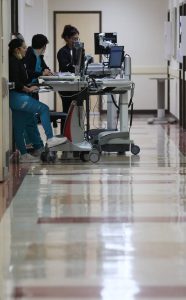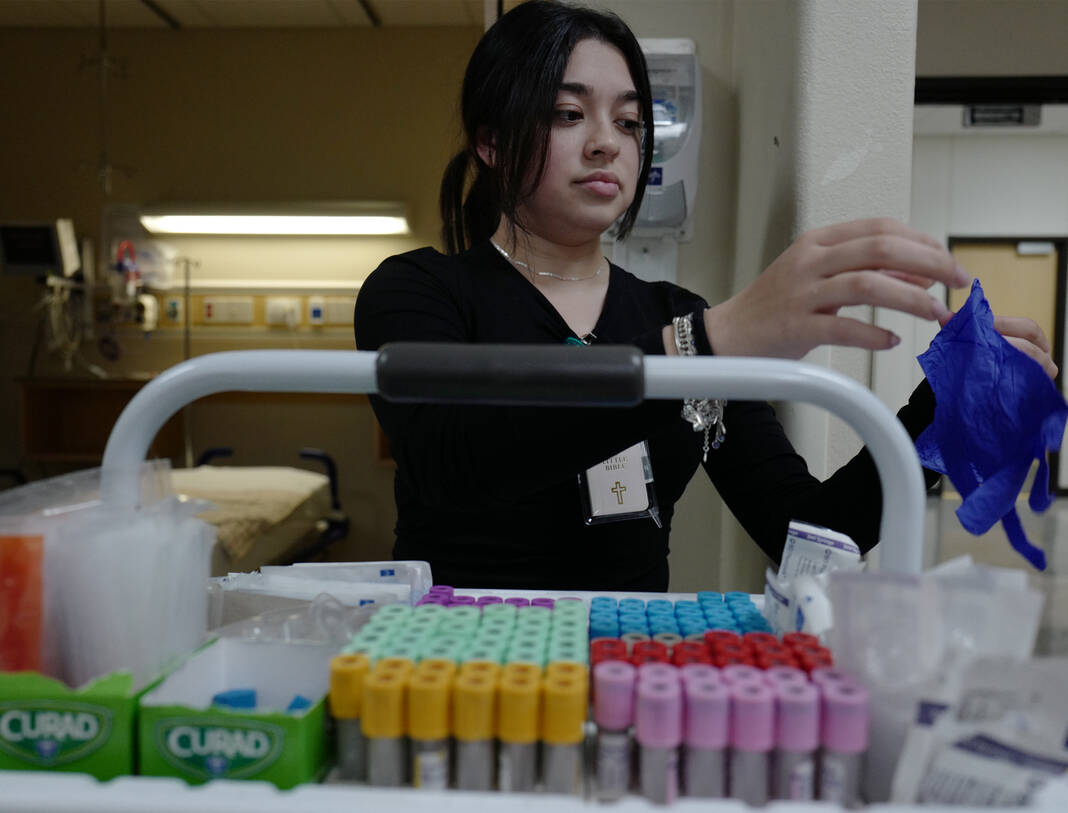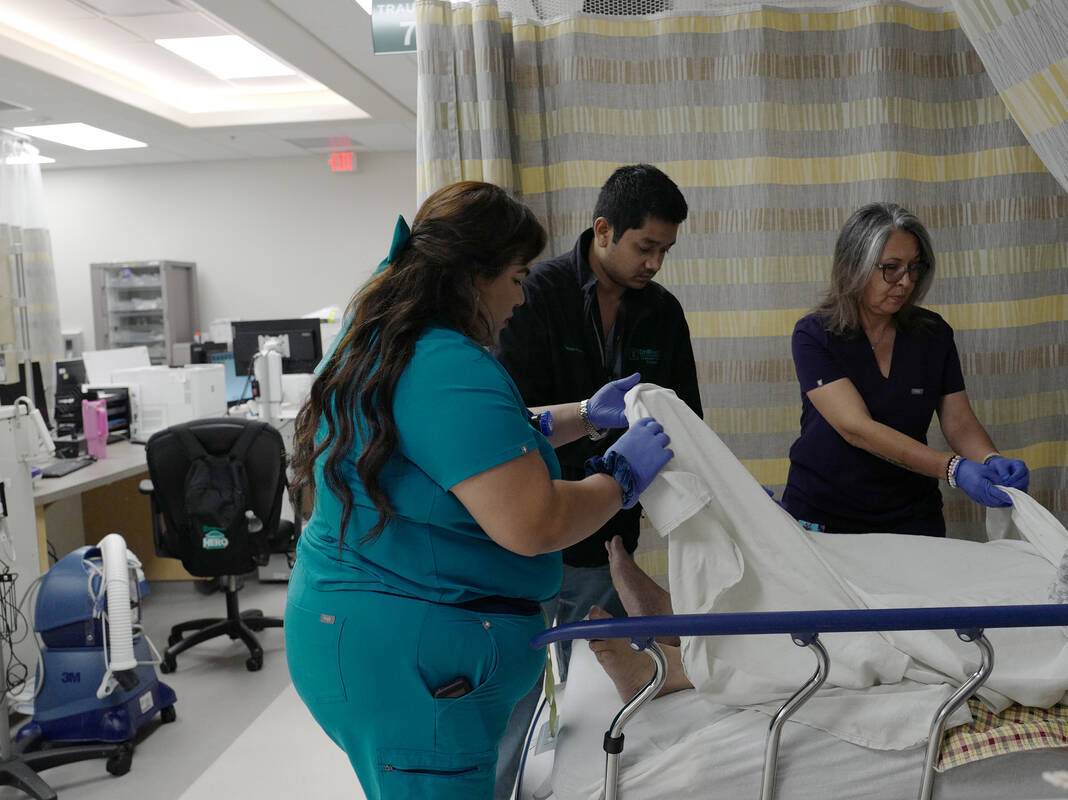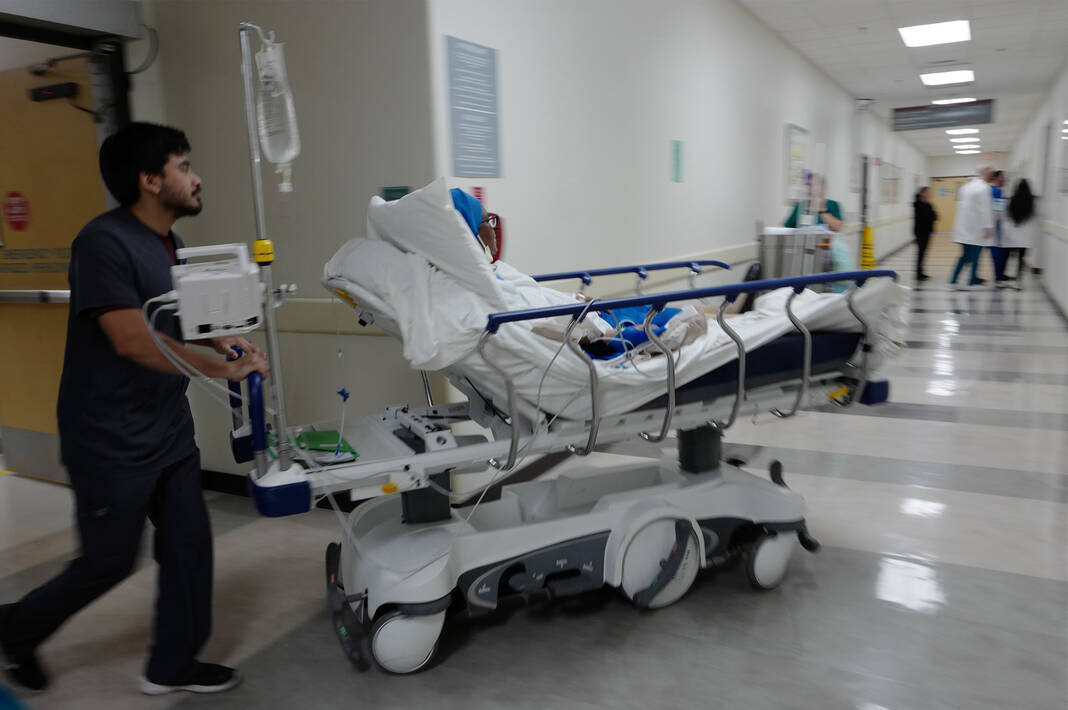|
Only have a minute? Listen instead
Getting your Trinity Audio player ready...
|

State Sen. Juan “Chuy ” Hinojosa along with 19 fellow South Texas legislators have penned a letter to Gov. Greg Abbott expressing concerns about the Driscoll Health Plan (DHP) potentially being replaced with a for-profit entity, which they fear would adversely impact low-income residents in the region and jeopardize nearly 500 jobs.
Officials are asking Abbott to contact the Texas Health and Human Services Commission (HHSC) to advocate for DHP, which has served 24 counties in South Texas — including Hidalgo, Cameron, Willacy and Starr counties — for about 26 years.
DHP is one of several organizations that administer CHIP and STAR, which provide health care for children in low-income households and for pregnant women and families.
The Texas Tribune reported Monday that DHP is one of several hospitals and managed care organizations that have protested the HHS scoring system for the Texas Medicaid bid procurement process after the state admitted to prematurely providing bidders’ proposals to Aetna, a competitor.
Aetna Better Health Texas is now scoring seven new contracts as a result, and although the state agency said providing the bids to Aetna was not illegal, those protesting point to an unfair advantage given to a competitor in August 2023, according to the Tribune.
Matt Wolthoff, the president of Driscoll Children’s Hospital Rio Grande Valley in Edinburg, said Thursday that contracts were awarded on March 7.
Wolthoff noted that the issue isn’t limited to South Texas, adding that there are an estimated 1.8 million people statewide who may be forced to change health plans and their providers as a result. This makes up about 56% of STAR and CHIP recipients.
DHP has served as a community health plan since 1998 and provided coverage for approximately 89,000 STAR and CHIP recipients in the Nueces service area since 2000, and around 336,000 recipients in the Hidalgo service area since 2012.
Between the two service areas, DHP currently insures 180,000 children and expecting mothers, making up 54% of recipients today.
“Driscoll Health Plan has been serving South Texas for over 20 years and the Rio Grande Valley for over 10 years. HHSC’s failed procurement process poses a serious threat to the health and well-being of our most vulnerable populations, while also having a significant negative economic impact on the Valley,” Wolthoff said in a statement.

“The synergies created by having a community based health plan and the region’s only designated children’s hospitals drive quality, lower cost, and increase access to care,” Wolthoff added. “We ask that HHSC delay this decision and for state lawmakers to seek a better solution for our community. Driscoll Health Plan, based on historical performance, should at least be afforded the opportunity to continue to compete in the markets we have served diligently.”
Hinojosa concurred.
“DHP has been pivotal in reducing maternal morbidity, mortality and improving infant outcomes by funding not only 75% of the maternal fetal medicine specialists in South Texas, but also mental health resources for children,” Hinojosa, who is leading the legislative effort, said in the letter.
Driscoll has invested over $10 million annually in maternal fetal medicine incentives to subsidize physician costs that have helped improve birth outcomes and reduce neonatal intensive care unit costs, legislators are arguing.
Through this investment the state has saved more than $1 billion between 2008 and 2022.
“Removing DHP from consideration as a provider of these services would disrupt the continuity of care for the families and children who are our constituents. It would force families to leave South Texas to receive these services,” Hinojosa wrote.
In a telephone interview on Thursday, the senator further argued that the Rio Grande Valley has historically been a medically under-served community where such plans are necessary for low-income residents in need of access.
In fact, Hinojosa pointed to the newly opened Driscoll Children’s Hospital Rio Grande Valley being designed to fill that need and prevent residents from needing to travel to Corpus Christi for care that was previously unavailable here.
But he scratched his head over the HHSC, which according to Wolthoff has ranked DHP as Texas’ highest performing plan in quality, opting for for-profit plans instead.

“Something didn’t quite go right in the process itself,” Hinojosa said about the state agency’s bid procurement. ”I think quite frankly it’s really a flawed process that needs to be corrected.”
What that looks like for Hinojosa are actionable measures that would halt the process and take the matter to the next legislative session.
“What we’re suggesting is for them to not award the contracts, to hold off,” he added. “We have until Sept. 1, 2025. We’ll be back in session in January 2025 and it’ll give the legislature time to come in and look at the process itself and make changes where other factors will be considered.”
He fears the alternative would have a “devastating” impact on a region that’s ever-growing. The Valley’s population sits at around 1.3 million and 30% of which are uninsured. Over the last 10 years, Hidalgo County alone has increased in population by 100,000 people.
“It would have a very damaging impact on South Texas. Driscoll hospital and the Driscoll Health Plan is a very high quality legacy plan, and has a very proven record in South Texas,” Hinojosa said. “Keep in mind that this is a children’s hospital and its reputation is one of excellent care for children.”





